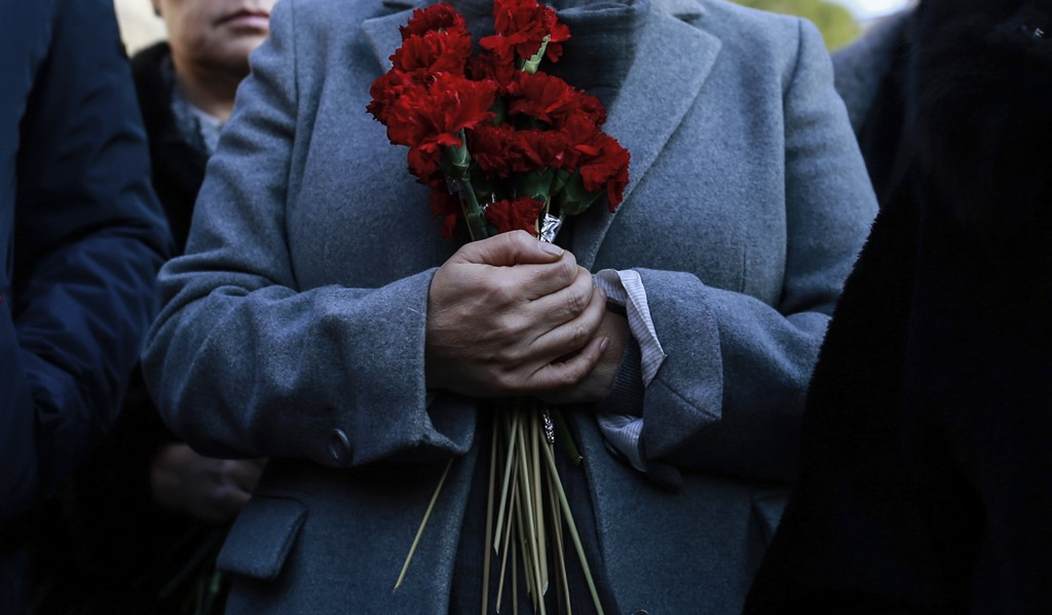First of all, let’s get the obligatory feel-good declarations out of the way. Happy Mother’s Day (and yes, it’s “Mother’s” in the singular, not Mothers’ as will be explained below ) to all of you mothers out there. I hope your families make you feel as special as you are.
With that sincere recognition out of the way it’s time for me to play Grinch for a bit, or whatever the Mother’s Day equivalent might be, because I’ve got a bone to pick with some of you. When it comes to expressions of positive sentiments there are likely few which should be less controversial and harmless than Mother’s Day. We’re celebrating motherhood and the most important woman in most of our lives. How much easier could it be? That’s just a no-brainer, right?
Apparently not. For at least some folks out there, Mother’s Day needs to come with a trigger warning, and that’s especially important for the churches. Writing at the Washington Post this weekend, Karen Swallow Prior, a professor of English at Liberty University, issues some guidelines for how churches can honor mothers without alienating the childless.
I’ll return to writing this column momentarily, just as soon as I find a bandage to staunch the bleeding caused by repeatedly smashing my forehead into my keyboard.
The author wants to remind us that those who wound up being unable to procreate may be traumatized by seeing everyone celebrating the maternal status of all of the childbearing women out there. And she’s particularly put off by a recent suggestion (likely intended to assuage the feelings of the childless) that “all women are mothers.”
First, saying that all women are mothers minimizes the significance of, well, actual mothers. Even using that term loosely — as a professor, I embrace the mothering role I sometimes play in the lives of my former students, for example — but mother” simply is not synonymous with “woman.”
Second, it threatens the notion that women can contribute significantly to the world in ways other than being a mother. And the women who feel the pain of childlessness more intensely on Mother’s Day need to be encouraged that motherhood is not the only way to an abundant and fulfilling life.
Things can get a little sticky for some of us when Mother’s Day rolls around, a tension that increases within contexts that emphasize the role of motherhood as part of a religious tradition, especially my own evangelical tradition, which particularly cherishes the role of motherhood.
Come on, Professor Prior. It’s Mother’s Day. Trust me… I get the fact that there are far too many women out there who, like you, truly wanted to have children but wound up being unable to because of medical issues or some set of interfering circumstances. But is it really that awful and off-putting to see the lives of those who did manage to produce children celebrated? I know there are parallels to this which become entangled in virtually every holiday and I’m not entirely unsympathetic. There’s an old myth that suicide rates bump up around Christmas, New Years and Valentines Day because those not in relationships are reminded of how lonely they are. (Suicides actually peak in the Spring, generally in May in the Northern Hemisphere.) But even if there aren’t more people killing themselves, it’s totally understandable how lonely people could become depressed seeing all of those annoying, happy couples out there celebrating.
We are also regularly cautioned (generally by liberals) to be careful about saying “Merry Christmas” around anyone who is Jewish. It seems that you can’t find a reason to celebrate anyone or anything without risking offending somebody. But we don’t stop celebrating Christmas, New Years, Valentines Day or any of the others because of it. We have 364 other days this year to remind women how they can productively contribute to the world in a multitude of amazing ways which don’t involve procreating. Can’t the churches just toss open the doors and celebrate mothers for this one day?
And what is this holiday which we’re getting all hung up over anyway? Take a walk back in time with this National Geographic article on the origins of Mother’s Day. It’s a lot darker than you might imagine. It was originally intended as a time for mothers who had lost children in the Civil War to remember fallen soldiers and work for peace. It was also identified as a time to recognize your mother, rather than mothers in general, which is why it’s properly spelled as Mother’s Day (singular). The woman who really sparked the movement to get it recognized as a national holiday, Anna Jarvis, ended up dying “penniless and broken in a sanitarium” after spending her life fighting against what the holiday was turned into by the forces of commercialization. Perhaps all of the non-mothers aren’t missing out on all that much after all.
There… I’ve run out of gas to be a Grinch on what should otherwise be a pleasant day for brunch with your mom. Perhaps it’s because my own mother passed away a couple of Christmas seasons ago and she’s not around to celebrate. Who knows? But let’s put away the defensive barriers and just let everyone get about their family business on what will hopefully be a pleasant Sunday in the Spring.
And for what it’s worth, once again, Happy Mother’s Day to you all.










Join the conversation as a VIP Member